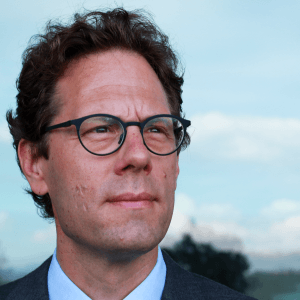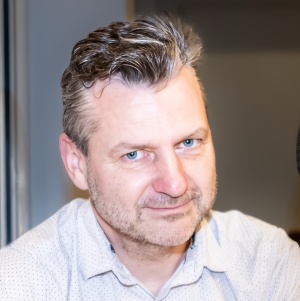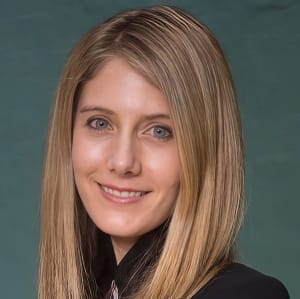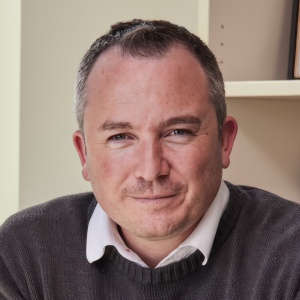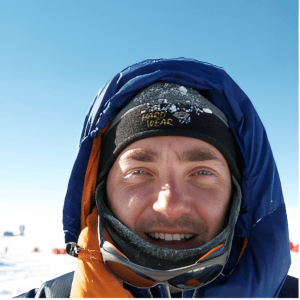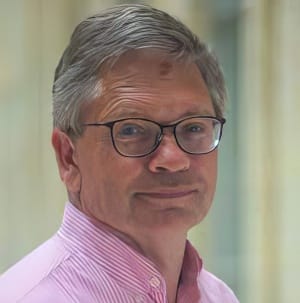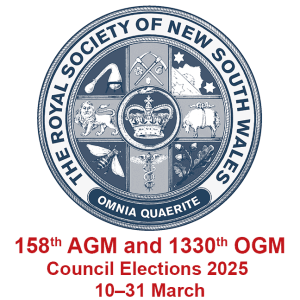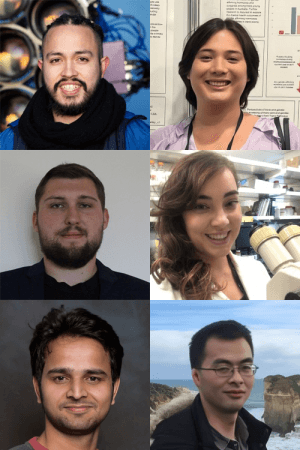
 Royal Society of NSW
Royal Society of NSW
2023 Student and Early Career Research
Award Presentations
Dr Jaime Alvarado-Montes, Macquarie
Ms Sasha Bailey, Sydney
Mr Jayden McKinnon, Wollongong
Dr Jacinta Martin, Newcastle
Dr Abhimanu Pandey, ANU
Dr Shoujin Wang, UTS
Date: Wednesday, 13 March 2023, 6.30 pm AEDT
Venue: Western Sydney University Parramatta South Campus, Old Female Orphan School (Building EZ), Cnr James Ruse Drive and Victoria Road, Rydalmere NSW 2116
Registration: Registration through Membes is required (Link to Follow)
All are welcome
The evening’s program comprises six short talks presented by PhD Research Candidates who have been awarded the Society’s Jak Kelly Award and the Royal Society of NSW Scholarships for 2023 and early career researchers who have been awarded Royal Society of NSW Early Career Citations. Mr Robyn Williams AM FRSN FAA of the ABC Science Show will chair the presentation of awards and will conduct a discussion with each of the postgraduate students and ECR speakers. Please follow the links below to read a summary of each presentation and a brief biography of the presenter.
Dr Jaime Alvarado-Montes (Jak Kelly Award) — Evolution of planetary systems under strong gravitational forces
Ms Sasha Bailey (Scholarship Winner) — Title: TBA
Mr Jayden McKinnon (Scholarship Winner) — Advancing mass spectrometry imaging towards the single cell resolution
Dr Jacinta Martin (Early Career Researcher Citation) — Mitigating the impact of environmental pollutants on neonatal health and development
Dr Abhimanu Pandey (Early Career Researcher Citation) — Harnessing the immune system to tackle bowel cancer
Dr Shoujin Wang (Early Career Researcher Citation) — Responsible AI-powered news recommender systems for combating fake news
Presentation Summaries and Brief Biographies of the Presenters
 Evolution of planetary systems under strong gravitational forces
Evolution of planetary systems under strong gravitational forces
Dr Jaime Alvarado-Montes
PhD Graduate, Macquarie University
The study of different types of solar systems can help us test the models that explain how planets form and evolve, as well as the interior structure of stars and planets. Considering the discovery of thousands of planets over the last four decades outside our Solar System, in this talk I will explain how gravitational forces affect the evolution of planetary systems and how these bodies release energy to their surroundings. In the most extreme cases, I have found that very strong forces could make planets undergo orbital motion, deforming their physical shape and inevitably leading to their destruction. My research can help us improve our understanding of planetary evolution using all types of solar systems discovered to date.
Jaime Alvarado-Montes is a professional astronomer, originally from Colombia. He is a recent PhD graduate from Macquarie University and is passionate about computing techniques, software skills, writing, and learning about science and its constant evolution. His research interests are in the planetary sciences, with an emphasis on extrasolar planets, moons, rings, asteroids, and comets. Most of his work is about how planetary systems evolve: this study can give us valuable information about their formation and can subsequently help us understand more about the history of our own Solar System. Jaime plans to continue in academia to become a full-time researcher and professor.
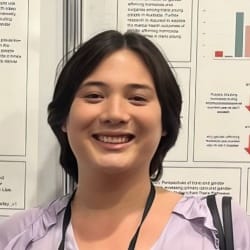 Title: to be announced
Title: to be announced
Sasha Bailey
PhD Candidate, University of Sydney
Talk Summary to follow
Brief Biography to follow
 Advancing mass spectrometry imaging towards the single cell resolution
Advancing mass spectrometry imaging towards the single cell resolution
Jayden McKinnon
PhD Candidate, University of Wollongong
In the current pursuit of science, there is an undeniable shift towards molecular imaging techniques approaching a resolution capable of capturing the metabolic intricacies of a single cell. At the forefront of advancing such a movement, Mass Spectrometry Imaging is an analytical technique that can not only provide a snapshot of the spatial distribution of hundreds to thousands of molecules in a single experiment throughout complex biological landscapes but concurrently their identity. The challenging aspect of any molecular imaging technique, like Mass Spectrometry Imaging, is the finite material that is sampled at a spatial resolution required to image a sample the size of a single mammalian cell. During this presentation, Jayden will take us on a journey through his current research focus and explore an approach that will allow us to peek within the molecular ensembles that drive the complexity of the cell.
Jayden McKinnon is a second-year as a PhD candidate in the School of Chemistry and Molecular Biosciences at the Molecular Horizons Research Institute, University of Wollongong. His academic journey began with the completion of a Bachelor of Medical Science in 2021, from which he graduated with Distinction and Honours. During his Honour’s year, he conducted research culminating in a thesis focused on mapping the spatial distribution of antioxidants within the ageing human lens. Since embarking on his doctoral studies in 2022, his research trajectory has evolved to centre around advancing mass spectrometry imaging techniques. His goal is to enhance both molecular coverage and spatial resolution, with a specific focus on single-cell imaging and elucidating cellular heterogeneity associated with the onset of cancer. His dedication and contributions to this field were recognised in late 2023 with a Royal Society of New South Wales Bicentennial Post Graduate Scholarship for his ongoing doctoral work.
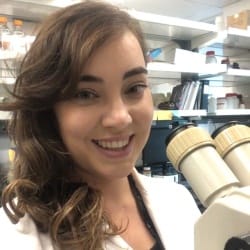 Mitigating the impact of environmental pollutants on neonatal health and development
Mitigating the impact of environmental pollutants on neonatal health and development
Dr Jacinta Martin
Postdoctoral Researcher, University of Newcastle
During everyday life, we are exposed to numerous environmental toxicants including per- and polyfluoroalkyl substances, commonly abbreviated as PFAS. PFAS are a family of organic chemicals that have been widely used in consumer products and industrial applications for over 50 years but have also been associated with adverse health outcomes including pregnancy-related pathologies and neonatal developmental defects. Additional evidence indicates that gestational PFAS exposure has significant consequences for babies including reductions in birth weight, impaired immune function, neurodevelopmental effects, altered puberty, and metabolic syndromes, all of which can have lifelong consequences for affected individuals.
While sufficient evidence exists to support negative associations between PFAS and these lifelong consequences, there is an urgent unmet need for high-quality research to increase our understanding of the mechanisms relaying these health effects. My research aims to enhance this understanding and ultimately develop effective interventions to mitigate the risk of PFAS exposure to women and children. To do this, I am using a multidisciplinary approach to explore the reproductive, developmental, and neuro-developmental implications of lifelong PFAS exposure, as might be experienced by an individual growing up in a contaminated community. Armed with this information I aim to deliver an evidence-based assessment of the impact of PFAS in communities across Australia and beyond.
Jacinta Martin is a Lecturer and Postdoctoral Researcher at the University of Newcastle UoN) in the College of Engineering, Science and Environment and the Hunter Medical Research Institute (HMRI) Infertility and Reproduction Research Program. She works with a multidisciplinary group of researchers using human and animal models to characterise the processes of gamete, fetal, and offspring development and how environmental exposures (e.g. per- and polyfluorinated Substances (PFAS) and heat) affect these processes.
After graduating from UoN with a PhD in 2019, Jacinta has established a strong academic record that includes 24 research articles and nearly $1 million in research funding. During her PhD, Jacinta received the “Best HDR Publication Award” in 2016 and 2018 and received several travel grants that allowed to to present her work at major international meetings. Following her PhD, she undertook post-doctoral research at the McGill University Health Centre in Montreal, Canada from 2019–2021. Dr Martin’s academic career extends beyond her personal research performance into the development of her discipline. She has served the Society for the Study of Reproduction (USA) on the Board of Directors as their trainee representative and has had significant professional roles at McGill University, HMRI, and the University of Newcastle as a facilitator, chair, adjudicator, and committee member.
 Harnessing the immune system to tackle bowel cancer
Harnessing the immune system to tackle bowel cancer
Dr Abhimanu Pandey
Postdoctoral Fellow, Australian National University
Bowel cancer kills more than 100 Australians every week. The risk of developing bowel cancer increases from age 50, but it is now occurring frequently in Australians under age 50. Despite the progress in developing novel therapeutics, bowel cancer is the second leading cause of cancer-related deaths worldwide. Given the high mortality and increasing number of cases (especially in the younger population), improvements in existing treatments and/or the development of more effective and safer drugs are needed for patients with bowel cancer. We have known for a long time that the immune system can pick up and destroy cancer cells. Therefore, harnessing and boosting the power of the immune system could be a safe approach to restricting the development of cancer. During my PhD, I investigated how the human immune system can play a role in halting the development and progression of bowel cancer. I identified several important immune proteins including one called Ku70, that works like a surveillance system detecting the damaged DNA that can lead to otherwise healthy cells becoming cancer cells.
Abhimanu Pandey is a postdoctoral researcher at the John Curtin School of Medical Research (JCSMR) at the Australian National University, following the completion of his PhD at JCSMR in 2022 and graduate studies in India before that. He works in the research group of Professor Si Ming Man which studies the role of innate immunity in infection and cancer. When Dr Pandey is not at the bench, he contributes to the mentorship and supervision of students and runs the Immunology Journal Club at JCSMR, raises funds for cancer research through ‘Can the Cancer’ Charity Golf Day, and serves as a voluntary reviewer for international journals.
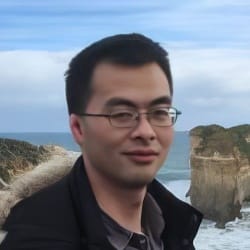 Responsible AI-powered news recommender systems for combating fake news
Responsible AI-powered news recommender systems for combating fake news
Dr Shoujin Wang
Lecturer in Data Science, University of Technology Sydney
Amongst the most popular applications of Artificial Intelligence (AI) are news recommender systems that have been widely employed by news websites and apps to connect end-users with news articles that satisfy their reading interests. With the help of advanced AI technology, modern recommender systems can achieve increasingly high recommendation accuracy. However, due to a lack of consideration for social responsibility in their design, in addition to legitimate content, news recommender systems may also recommend some articles with a negative social impact, such as ‘fake news’. As well as proliferating the spread of mis- and dis- information, if users unintentionally access fake content, this can lead to AI systems continuing to recommend articles and sites of this type to them. Such recommendations of fake news pose a great threat to society by misleading the public. To address this issue, we developed a novel AI-powered responsible recommender system for combating fake news for social good. The new recommender system not only achieves high recommendation accuracy but also is effective in filtering out fake news from candidate news, towards true news-oriented recommendations.
Shoujin Wang is a Lecturer in Data Science at the University of Technology Sydney, following the completion of his PhD at UTS in 2019. His research interests are in data mining, machine learning, recommender systems, and fake news mitigation, and, in the past five years, he has authored 70 publications that have received 2,800 citations. His research record includes several IEEE awards and a growing research grant profile. His research activities have a range of real-world applications and impacts, notably his pioneering work on fake news mitigation via recommendation that is helping to mitigate disinformation on the web. His work addresses challenges faced across a range of sectors including infrastructure, banking, accounting, and agriculture, and involves collaborators that include EY, Sydney Water, Suncorp, and Agriweb. His work with Sydney Water has led to a novel prediction model that automatically and effectively provides early detection of water quality issues in reservoir catchments.
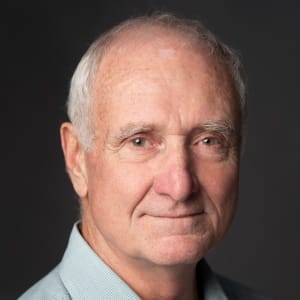 Mr Robyn Williams AM FRSN FAA
Mr Robyn Williams AM FRSN FAA
Science Journalist, Broadcaster, and Presenter of the ABC RN Science Show
Robyn Williams AM FRSN FAA, British/Australian science journalist and broadcaster, will chair the presentation of awards. Over the decades since he hosted Innovations and Investigations from 1974 — The Science Show on ABC Radio National (RN) in 1975, and created Ockham’s Razor in 1984, he has become one of Australia’s best-recognised science communicators. He brings clarity, judgement, and humour to the complexities of scientific research.
| Date: | Wednesday, 13 March 2024, 06:30 PM |
| Venue: | Western Sydney University Parramatta South Campus, Old Female Orphan School (Building/Room EZ.G.22), Cnr James Ruse Drive and Victoria Road, Rydalmere NSW 2116. |
| Entry: | No Charge |
In Person Event
All are Welcome

